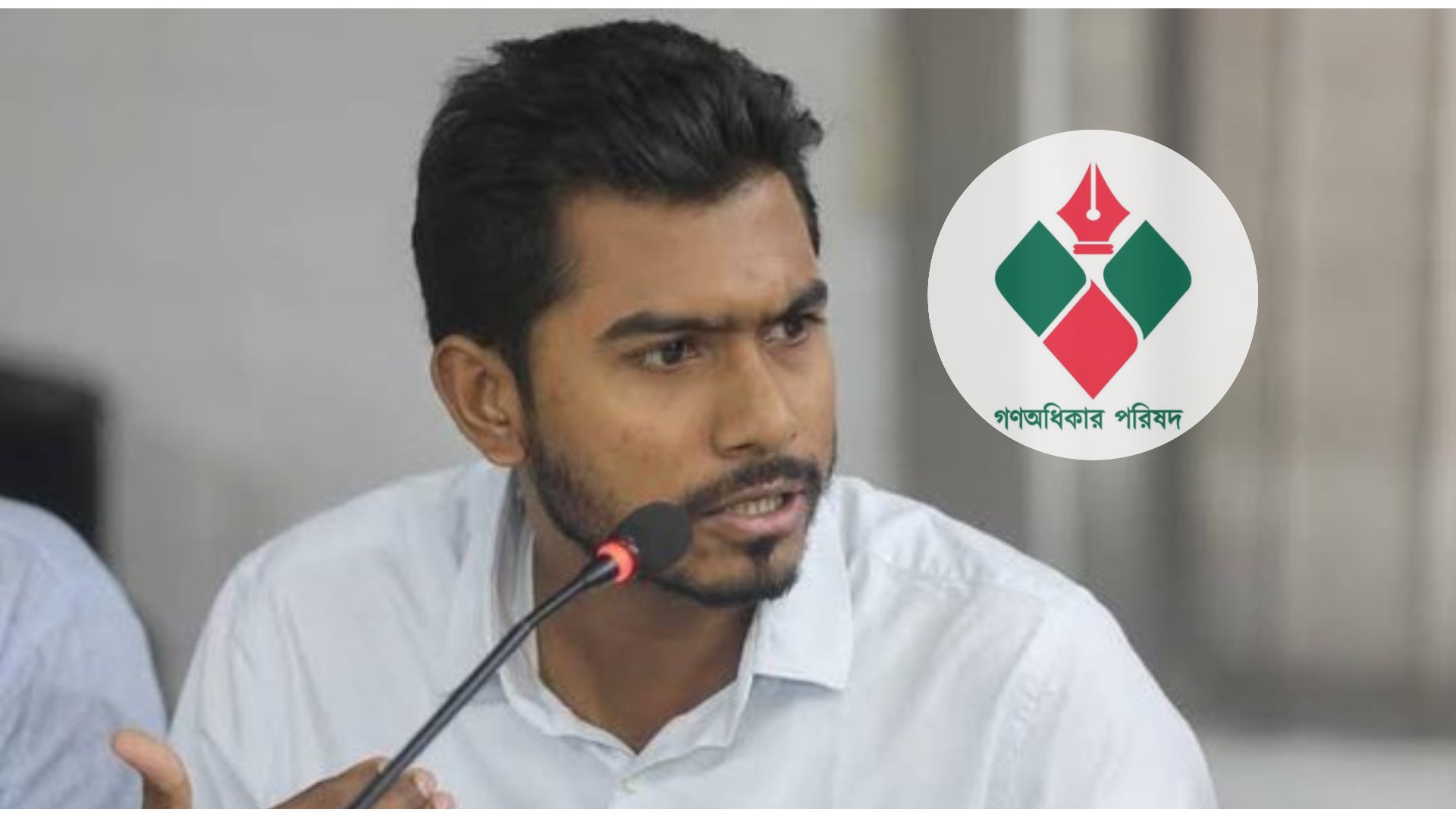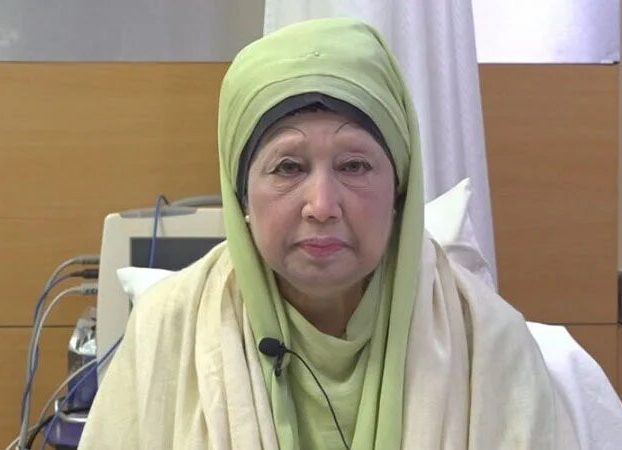
In a landmark development that has the potential to reshape Bangladesh’s political landscape, the political party spearheaded by the prominent student leader VP Nur, formally known as the “Bangladesh Gono Odhikar Party,” has successfully secured its official registration. This achievement is not merely a procedural victory but a significant milestone that underscores the growing influence and rising prominence of a new generation of leaders within the country’s political sphere.
VP Nur, whose full name is Nurul Haque Nur, has been a central figure in Bangladesh’s student activism for several years, earning widespread recognition for his tireless efforts in advocating for the rights of students and the broader population. His leadership during critical movements, such as the quota reform protests, established him as a formidable voice for change, particularly among the youth. The official registration of his party represents the culmination of his ongoing commitment to challenging the status quo and bringing about substantive reforms in the nation’s governance.
The registration of the “Bangladesh Gono Odhikar Party” is a crucial step in the broader evolution of Bangladesh’s political dynamics. For a long time, the political scene in Bangladesh has been dominated by a few established parties, often criticized for being out of touch with the needs and aspirations of ordinary citizens. The entry of VP Nur’s party into this arena offers a fresh platform that seeks to address the myriad challenges facing the nation today—challenges that range from ensuring social justice and economic equality to combating widespread corruption and enhancing democratic governance.
This new political entity is poised to inject much-needed dynamism into the political discourse, particularly by focusing on the voices and concerns of the younger generation, who make up a significant portion of the country’s population. The “Bangladesh Gono Odhikar Party” aims to bridge the gap between the government and the people, providing a forum for marginalized groups to have their concerns heard and addressed.
The successful registration of the party is more than just a formality; it symbolizes the beginning of a new chapter in Bangladesh’s political history. It represents a growing acknowledgment of the need for alternative political forces that can offer innovative solutions to the country’s pressing issues. With its official status, VP Nur’s party now has the legitimacy and legal standing to contest in national elections, advocate for policy changes, and participate fully in the democratic process.
As the “Bangladesh Gono Odhikar Party” embarks on this journey, it will undoubtedly face numerous challenges, including the need to build a robust organizational structure, develop comprehensive policy platforms, and garner widespread support across diverse demographics. However, the party’s registration marks a promising start, signaling a shift in the country’s political dynamics that could pave the way for more inclusive and responsive governance in the years to come.
The Political Journey of VP Nur
Nurul Haque Nur, widely known as VP Nur, first rose to prominence as the Vice President of the Dhaka University Central Students’ Union (DUCSU), where he became a symbol of student activism and a voice for the rights of the youth. His journey into the political arena began in the halls of Dhaka University, where he led various movements advocating for student rights and educational reforms. His leadership during the quota reform movement in 2018 brought him national attention, positioning him as a key figure in the fight for justice and equity within the educational system.
Nur’s tenure as VP of DUCSU was marked by his relentless efforts to challenge the status quo and his vocal opposition to policies he believed were detrimental to the welfare of students and the broader population. His activism often brought him into direct conflict with the authorities, leading to several confrontations that highlighted the tension between the government and the student body. Despite the challenges, Nur’s popularity soared, particularly among the youth, who saw in him a leader unafraid to speak truth to power.
As his influence grew, Nur began to shift his focus towards a broader political agenda. Recognizing the limitations of student activism within the existing political framework, he embarked on the journey to establish a political party that could champion the causes he had long fought for. The formation of the “Bangladesh Gono Odhikar Party” was the culmination of this vision, representing a new chapter in his political career and a significant expansion of his influence beyond the confines of the university campus.
The Party’s Official Registration
The official registration of VP Nur’s party is not just a procedural achievement; it is a testament to the growing influence and support that Nur and his followers have garnered over the years. The “Bangladesh Gono Odhikar Party” (Bangladesh People’s Rights Party) aims to be a voice for the marginalized, focusing on issues such as democratic rights, social justice, and economic equality. The party’s platform is built on the principles of transparency, accountability, and the protection of citizens’ rights, all of which have been central themes in Nur’s activism.
Gaining official registration is a critical step for any political party in Bangladesh, as it allows the party to contest in national elections, access state resources allocated for political activities, and operate within the legal framework of the country’s political system. For VP Nur’s party, this registration opens the door to greater participation in the political process and provides a platform to challenge the established political powers in the country.
The registration process itself was not without its hurdles. The party faced scrutiny from the Election Commission, which evaluated its compliance with the legal requirements for registration. The successful completion of this process is a significant victory for Nur and his supporters, who have long argued that the existing political parties have failed to represent the interests of ordinary Bangladeshis.
Political Context and Significance
The registration of the “Bangladesh Gono Odhikar Party” comes at a time when Bangladesh’s political environment is increasingly polarized. The major political parties have been accused of being out of touch with the needs of the people, focusing more on power struggles than on governance. Nur’s party positions itself as an alternative to this entrenched system, promising to bring a new, people-centered approach to politics.
One of the key aspects of Nur’s political strategy is his emphasis on youth engagement. Bangladesh has a large and growing population of young people, many of whom feel disillusioned with the current political system. Nur’s appeal to this demographic is a critical component of his party’s potential success. By focusing on issues such as education reform, employment opportunities, and anti-corruption measures, the “Bangladesh Gono Odhikar Party” aims to galvanize young voters who are eager for change.
Furthermore, Nur’s party has vowed to tackle corruption head-on, a pledge that resonates with a population that has grown weary of the pervasive corruption that has plagued the country for decades. By advocating for stronger anti-corruption laws and more robust enforcement mechanisms, the party seeks to differentiate itself from the existing political entities that have often been implicated in corrupt practices.
Challenges and Future Prospects
While the registration of the “Bangladesh Gono Odhikar Party” is a significant milestone, VP Nur and his party face a host of challenges as they prepare to enter the political arena on a larger scale.
Firstly, the entrenched political powers in Bangladesh, including the ruling party and the main opposition, have established networks of influence and resources that will be difficult for a new party to compete with. These established parties have deep roots in the country’s political system, and they wield significant control over both the electoral process and the media. For Nur’s party, breaking through this dominance will require not only grassroots support but also strategic alliances and effective messaging.
Secondly, the political landscape in Bangladesh is often marked by volatility and violence, particularly during election periods. New political entities frequently face harassment, intimidation, and even violence, both from state actors and from rival political groups. VP Nur, given his history of confrontations with authorities, is likely to face considerable resistance as he attempts to build his party’s presence across the country.
Moreover, while Nur’s appeal to the youth is a strength, it also presents a challenge. Mobilizing young people and translating their enthusiasm into votes is not an easy task, especially in a political system that is often resistant to change. The success of the “Bangladesh Gono Odhikar Party” will depend on its ability to maintain momentum and build a broad-based coalition that extends beyond its core base of student supporters.
On the other hand, the party’s emphasis on anti-corruption, social justice, and economic reforms could resonate with a broader segment of the population, particularly those who feel disenfranchised by the current political establishment. If the party can effectively communicate its message and propose realistic, actionable solutions to the country’s problems, it could attract support from a wide cross-section of society.
Looking Ahead: The Role of VP Nur in Bangladesh’s Political Future
As VP Nur and his party embark on this new chapter, the coming months and years will be crucial in determining their place in Bangladesh’s political future. The successful registration of the “Bangladesh Gono Odhikar Party” is just the beginning of a long and challenging journey. The party must now focus on building its organizational structure, developing its policy platform, and preparing for upcoming elections.
Nur’s leadership will be key to navigating these challenges. His ability to inspire and mobilize supporters, coupled with his determination to fight for the rights of ordinary Bangladeshis, will be critical factors in the party’s success. If he can leverage his popularity and the widespread discontent with the status quo, VP Nur could emerge as a significant force in the country’s political landscape.
In conclusion, the registration of VP Nur’s party marks an important moment in Bangladesh’s political history. It represents the formal entry of a new political force that has the potential to challenge the existing power structures and bring about meaningful change. As the “Bangladesh Gono Odhikar Party” begins its journey, all eyes will be on VP Nur to see how he and his party navigate the complexities of Bangladesh’s political system and whether they can translate their ideals into tangible results for the people.

 A.B.M. Abir
A.B.M. Abir 


















